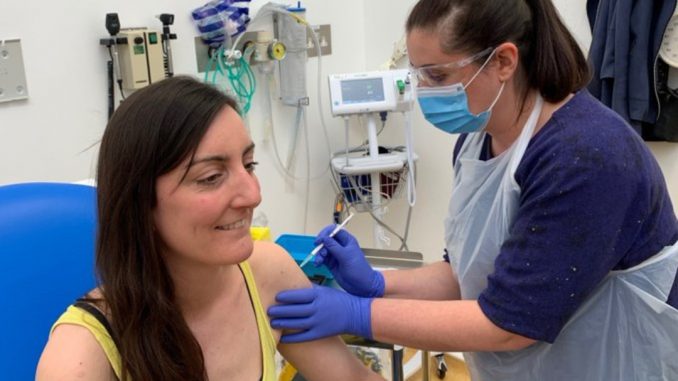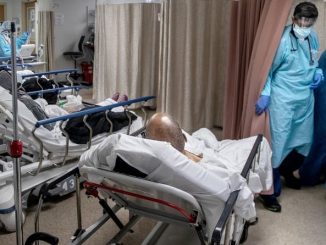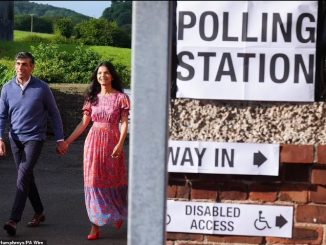
After a fake article about her death was circulated on social media, one of the first people injected as part of UK human trials for a coronavirus vaccine has said she is “doing fine.”
The article claims that microbiologist Dr Elisa Granato, who took part in the Thursday trial of the vaccine in Oxford, had died following complications after she got vaccinated.
Following the death rumours, the government later said the article was “completely untrue”, and warned people about sharing unsubstantiated claims online, the Guardian reported.
Granato was one of two people to take part in the trial, and said she was excited to support the efforts by volunteering.
Following the article about her “death”, she tweeted about the news before making her Twitter account private. She wrote: “Nothing like waking up to a fake article on your death … I’m doing fine everyone.”
Fake news has been circulating on social media that the first volunteer in the Oxford vaccine trial has died. This is not true! I spent several minutes this morning chatting with Elisa Granato via Skype. She is very much alive and told me she is feeling “absolutely fine” pic.twitter.com/iWAtYaSkRZ
— Fergus Walsh (@BBCFergusWalsh) April 26, 2020
….and here is Dr Elisa Granato in person. Alive and well pic.twitter.com/Csw1WqmBQa
— Fergus Walsh (@BBCFergusWalsh) April 26, 2020
On Sunday afternoon, the Department of Health and Social Care tweeted: “News circulating on social media that the first volunteer in a UK coronavirus vaccine trial has died is completely untrue.
“Before sharing unsubstantiated claims online, use the Share checklist to help stop the spread of harmful content.”
Earlier this month, the government relaunched its Don’t Feed the Beast public information campaign to encourage people to question what they read online. The Share checklist includes basic advice such as checking the source of a story and analysing the facts before sharing.
A rapid response unit operating from within the Cabinet Office and No 10 is tackling a range of fake news and scams online and coordinating with departments across Whitehall to deploy the appropriate response. This can include a direct rebuttal on social media, working with platforms to remove harmful content and ensuring public health campaigns are promoted through reliable sources.
Can you get coronavirus twice? – video explainer
The unit is one of the teams feeding into the wider counter-disinformation cell led by the Department for Digital, Culture, Media and Sport, made up of experts from across government and in the tech sector.
The cell is engaging with social media platforms and disinformation specialists from civil society and academia to establish a comprehensive overview of the extent, scope and impact of disinformation related to coronavirus.
A Covid-19 vaccine is considered the ultimate exit strategy from lockdown by many experts, and scientists across the world are racing to develop one that can be produced at scale.
The Oxford Vaccine Group hopes to have at least a million doses ready in September.




